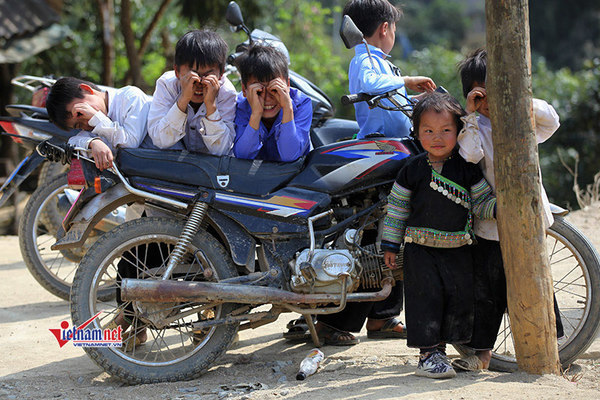 |
|
Human rights are the goal, the driving force for national development
|
More than 50 years ago, member countries of the United Nations adopted the Universal Declaration of Human Rights to affirm the human, inherent, and immovable values of each individual in the whole world. Human rights are the crystallization of the noble human values of human civilization, the result of the common struggle of all humanity against oppression, violence and injustice.
Since then, the Universal Declaration of Human Rights has become a common standard for all peoples and nations to strive to ensure and exercise the fundamental rights and freedoms of people, encourage and enhance tolerance, and respect for humanity and human values.
In Vietnam, in every revolutionary period in history, people have always been at the center. The Communist Party and State of Vietnam pay special attention to ensuring the realization of human rights in all fields and this is an outstanding achievement, confirming the advantages of the new social regime.
In the process of comprehensive renovation of the country, human rights have been expanded. Human rights are not only a goal but also a driving force for national development. Therefore, the fact that the Party and Government of Vietnam placed people at the center of development policy has established solid premises for strong and comprehensive development of human rights, including civil, political, economic, cultural and social rights. There are still some difficulties due to objective conditions, but Vietnam's achievements in addressing human rights are undeniable.
In the current conditions of building a socialist rule-of-law state of the people, by the people and for the people in Vietnam today, the issue of ensuring and promoting human rights has been considered as a factor determining the state of law, and a goal and requirement for all state agencies in general and Government agencies in particular.
The 1992 Constitution states: In the Socialist Republic of Vietnam, human rights in politics, civil, economic, cultural and social fields are respected, reflected in civil rights and stipulated in the Constitution and laws ... The State guarantees the rights of citizens; citizens must fulfill their obligations towards the State and society ... All citizens are equal before the law [49].
In the world today, along with the trend of globalization and economic integration, human rights issues are linked to the issue of sustainable development, becoming a fundamental and very urgent topic of theory, but there are differences in approaches and priorities on human rights, stemming from differences in history, culture, political institutions, and development levels.
This is normal practice in international relations. The important thing is the attitude of willingness to cooperate, and have a dialogue in a cooperative, construction spirit and mutual respect.
Based on the internationally recognized efforts, in the coming time, Vietnam will prioritize the following specific content:
Firstly, continue to strengthen the legal system to ensure better implementation of the basic rights and freedoms of the people, and compliance with the 2013 Constitution and Vietnam's international commitments.
Secondly, promoting socio-economic development in order to improve conditions and resources for hunger eradication and poverty alleviation, improving the quality of material and spiritual life for people.
Thirdly, improve access to different types of social security.
Fourthly, improve the quality of education in order to develop human resources, including education of to raise people's awareness and capacity of law enforcement agencies in this regard.
Fifthly, continue to promote gender equality because this is an important factor to build a strong human resource, as well as promote the quality of life for each individual, each family and the whole society.
Sixthly, improve community healthcare, towards a healthy society and access to adequate health care services both physically and mentally.
Seventhly, continue to strengthen cooperation with all countries, regional and global organizations and institutions related to human rights. ”
Hai Van
 In the process of comprehensive renovation of the country, human rights have been expanded. Human rights are not only a goal but also a driving force for national development.
In the process of comprehensive renovation of the country, human rights have been expanded. Human rights are not only a goal but also a driving force for national development.